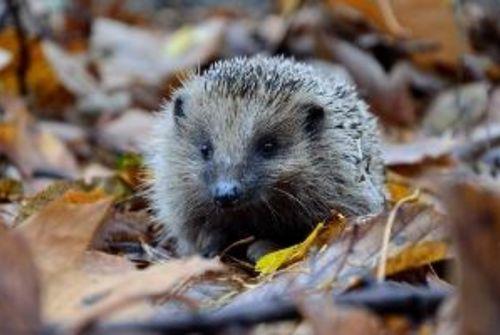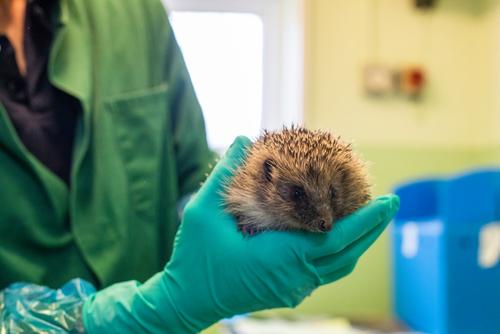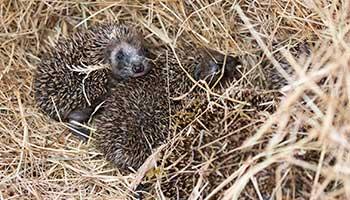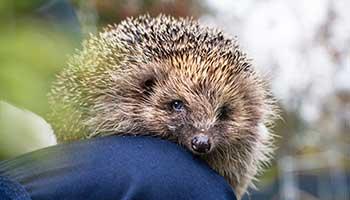Where do hedgehogs live?
Hedgehogs are widespread throughout England and Wales. They live in a range of habitats such as farmland, woodland and urban areas, where they're a favourite with gardeners. Individual hedgehogs can travel as far as one or two miles in one night!
They're most active at night and rest during the day in nests made of vegetation, such as leaves, twigs, and grasses.

What do hedgehogs eat?
Hedgehogs are mostly insectivorous, so will prey on beetles, caterpillars and earthworms. Occasionally they may eat amphibians, small rodents and birds that are already dead, slugs and snails, birds’ eggs and even fruit.
When do hedgehogs hibernate?
Hibernation usually takes place between November and mid-March. The exact timings will depend on the weather and in mild years, hedgehogs have been active as late as December.
Hedgehogs will often wake up from hibernation and forage for food or move their nest site at least once, before they go back to sleep. The nest they build to hibernate in is called a hibernaculum, which helps to keep them warm when their body temperature drops during hibernation.
The decline in hedgehog populations
Sadly, hedgehog populations are thought to be falling rapidly, particularly in rural areas. They're now considered vulnerable to extinction in Great Britain.
There are a variety of factors contributing to hedgehogs' decline, including:
- The destruction of their habitats
- Increased road traffic
- Use of pesticides which makes it harder for them to find food
- Garden hazards like netting and ponds cause further casualties as hedgehogs can become easily trapped in them
For more information on how to help hedgehogs in your garden please visit The Hedgehog Street campaign.





